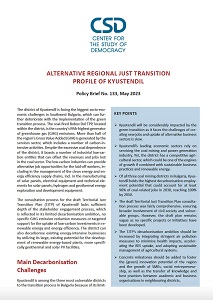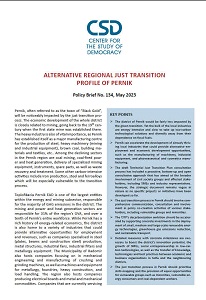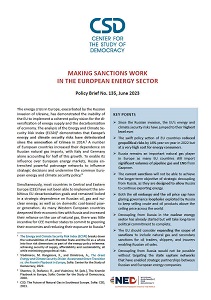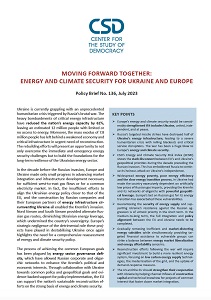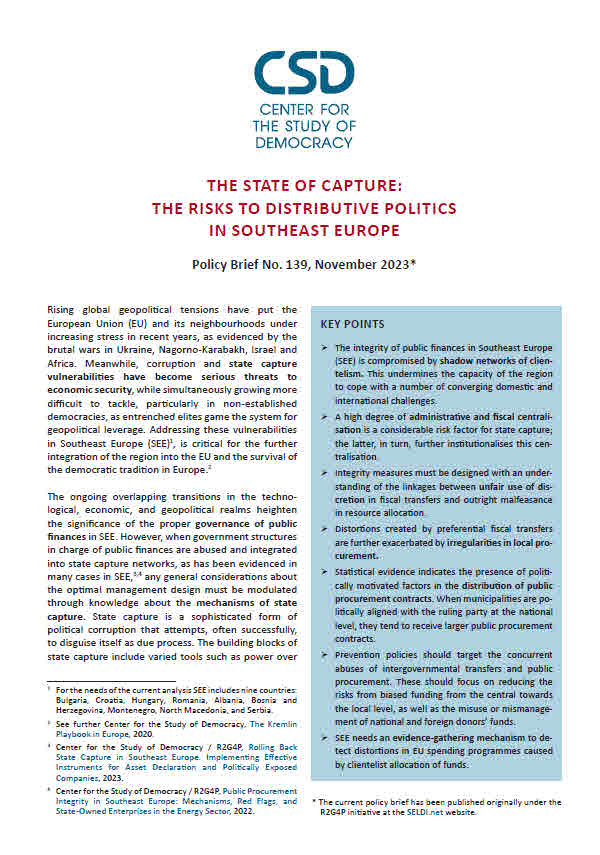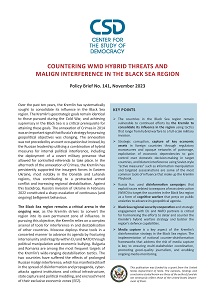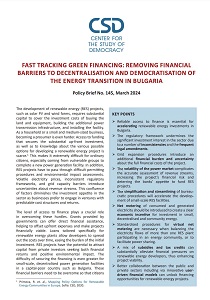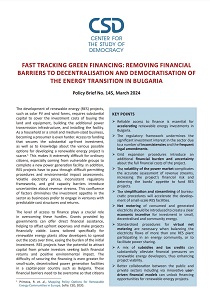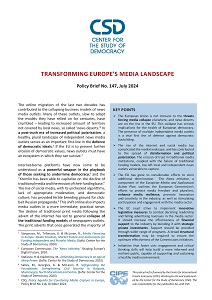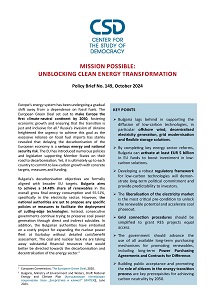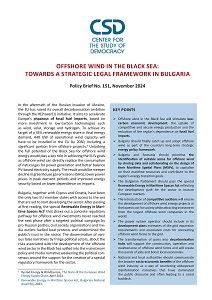
CSD Policy Brief №. 131: Building Institutional Capacity Framework for Resilience to Disinformation in Bulgaria.
CSD Policy Brief №. 131: Building Institutional Capacity Framework for Resilience to Disinformation in Bulgaria.
With the start of its war of aggression in Ukraine, the Kremlin has intensified its disinformation and political interference campaigns across Europe, with a particular focus on Central and Eastern Europe. Using instruments of state capture, specifically focusing on key sectors such as energy, finance and banking, telecommunications, defence, and media, the Kremlin exploits and reinforces existing government vulnerabilities in these countries, in order to erode their governments’ Euro-Atlantic positions and public trust in democratic institutions and European policies and values. // The countries of CEE are particularly vulnerable to this threat, as some of them demonstrate alarmingly high levels of cognitive capture among the general population, political elites, and the media, swaying public opinion towards Russia and its authoritarian model. // Efforts to counter pro-Kremlin disinformation must extend beyond information operations and strategic communication to expose state and media capture across the region, and to develop and effectively implement new and enhanced institutional and regulatory frameworks that will decouple countries’ governance systems from Kremlin interests. To do it, Bulgaria must urgently develop a comprehensive legislative framework for the effective implementation of EU and international sanctions. // The following policy brief presents a concise picture of the short- and long-term governance challenges to the development of national counter-disinformation capacity, building upon the existing initiatives currently led by civil society, media, and the private sector.
More...
